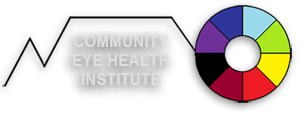DRC Bandundu RAAB survey completed

On Wednesday 7 September, the Director of the University of Cape Town's Community Eye Health Institute (UCT-CEHI), Deon Minnies, presented the provisional findings of the Rapid Assessment of Avoidable Blindness (RAAB) survey, which was conducted in the Bandundu region of the Democratic Republic of the Congo during July and August 2023.
Four examination teams comprised of an ophthalmologist and an ophthalmic nurse collected data from more than 5000 participants, aged 50 years and older, over eight weeks in the three provinces, Kwilu, Mai-Ndombe and Kwango, which make up the Bandundu region. The examination teams performed eye examinations and obtained information about participants' vision, after having been provided with information of the area by teams of cluster informers, who went ahead of them to market and prepare the clusters for the investigation.
The data collectors and cluster informers, along with two principal investigators and a coordinator, total of 15 people, were trained by the Director of UCT-CEHI, who is a Certified RAAB trainer, in Kinshasa in June 2023. The training comprised in depth study of the research protocol, including the RAAB examination procedures, data collection on smart phones, cluster informing, quality control and safety and risk management procedures.
The data collection was not easy. The team members were faced with many difficulties: transport, difficult terrain, and making use of motorbike taxis, ferries and motor boats. The teams had to cross many tributaries of the mighty Congo river, and had to make use of whaleboats, aeroplanes and long distances on foot through the the forest and savannah, even sometimes wading through streams to reach some remote villages. The overnight stay, food and ablution facilities were also frequently uncomfortable and meagre in quantity. The team members bravely prevailed and produced work of great quality despite these challenging circumstances.
The report was presented at a historic workshop organised by the Director and Deputy Director of the National Programme for Ocular Science and Vision (PNSOV), Drs Josette Kikaya and Maway Behn. Focal persons of more than twenty of the country's 26 provinces and over 20 non governmental partners presented their reports of the status of vision in their constituencies. It was a well-represented and -conducted meeting, which elicited lively discussion about the challenges and achievements of eye care in the country.
The RAAB survey report highlighted the main findings, which included high prevalence of blindness, catatact by far being the most prevalent cause of blindness, and more than 99% of blindness being treatable with cataract surgery and refractive error correction and correctable through improved ophthalmic services. Several interventions were recommended to address the high burden of avoidable blindness, including the establishment of a regional eye care coordination committee. This latter was instantaneously acted upon with the formation of the Bandundu Inclusive Eye Health Committee after the close of the workshop proceedings.
Overall, the meeting was a resounding success, and the reports, including the RAAB report, were well received. There was a sense of excitement amongst the delegates, with promises of much improvement in eye care services in the months ahead.



